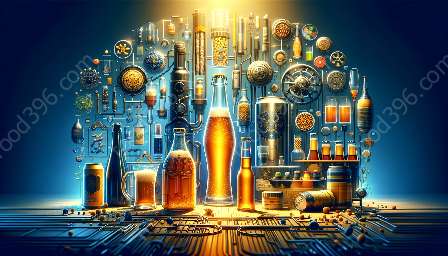When it comes to non-alcoholic beverages, choosing sustainable packaging options is a key consideration for businesses aiming to reduce their environmental footprint. In this article, we'll explore the various sustainable packaging choices available for non-alcoholic beverages, consider packaging and labeling regulations, and highlight innovative solutions in beverage packaging and labeling.
Sustainable Packaging Choices
Companies producing non-alcoholic beverages have a range of sustainable packaging options to choose from, each with its unique environmental benefits. Some of the popular sustainable packaging materials include:
- Glass: Glass is one of the most commonly used materials for non-alcoholic beverage packaging. It is 100% recyclable, can be reused, and preserves the flavor and quality of the beverage.
- Aluminum: Aluminum cans are lightweight, stackable, and fully recyclable. They have a high recycling rate and are easy to transport, making them an eco-friendly packaging option.
- PET Plastic: Polyethylene terephthalate (PET) plastic is lightweight and shatter-resistant. It is also recyclable and has a lower carbon footprint compared to other plastic materials.
- Biodegradable Materials: Packaging made from biodegradable materials, such as plant-based plastics or compostable packaging, offers a sustainable alternative to traditional packaging materials.
Packaging and Labeling Considerations
When selecting sustainable packaging options for non-alcoholic beverages, businesses must also consider packaging and labeling regulations. It is essential to ensure that the packaging and labeling comply with local and international standards, including:
- Recycling Symbols: Packaging should prominently display recycling symbols to inform consumers about the recyclability of the materials and encourage proper disposal.
- Ingredient Transparency: Clear and accurate labeling of ingredients is crucial to inform consumers about the content of the beverage and any potential allergens or additives.
- Sustainability Certifications: Businesses can obtain certifications such as FSC (Forest Stewardship Council) or PEFC (Programme for the Endorsement of Forest Certification) for sustainable packaging materials, enhancing their credibility and demonstrating commitment to environmental responsibility.
Beverage Packaging and Labeling Trends
The beverage industry is witnessing innovative trends in packaging and labeling, driven by consumer demand for sustainable and eco-friendly products. Some of the latest trends include:
- Minimalist Packaging: Brands are adopting minimalist packaging designs, using less material and focusing on simplicity and functionality to reduce waste.
- Bioplastic Innovation: Advancements in bioplastics are enabling the production of eco-friendly packaging materials derived from renewable sources, such as cornstarch or sugarcane, offering a sustainable alternative to traditional plastics.
- Smart Packaging: Integration of technology, such as NFC (Near Field Communication) tags and QR codes, on beverage packaging allows consumers to access information about the product's origin, production methods, and environmental impact.
By embracing sustainable packaging options and staying abreast of packaging and labeling considerations, businesses can contribute to a more eco-friendly and responsible non-alcoholic beverage industry. Choosing the right packaging materials, adhering to regulatory standards, and embracing innovative trends in beverage packaging and labeling not only benefits the environment but also enhances brand reputation and consumer trust.

